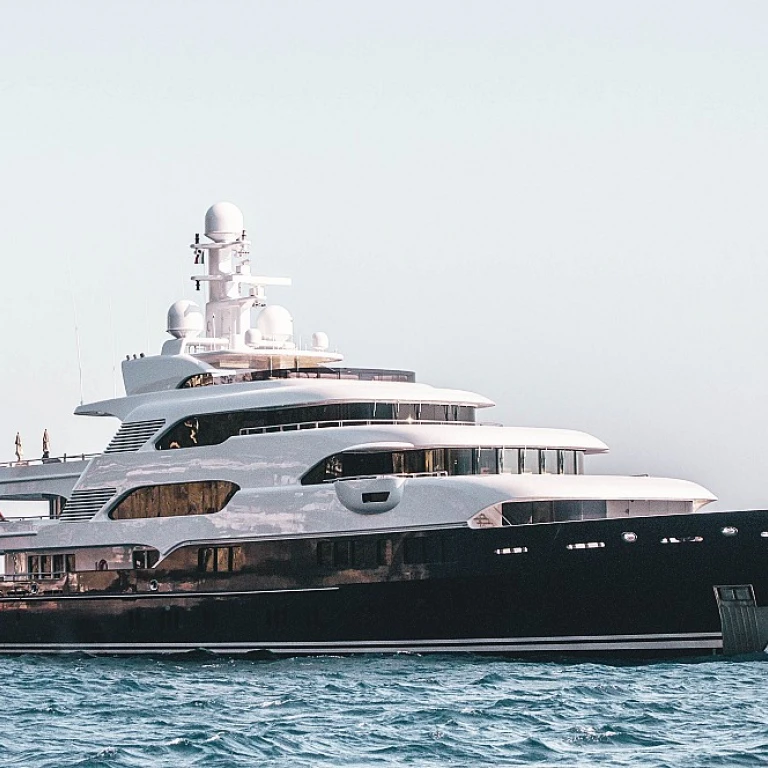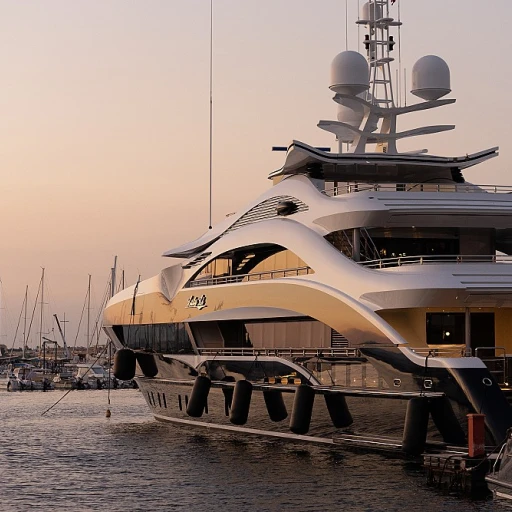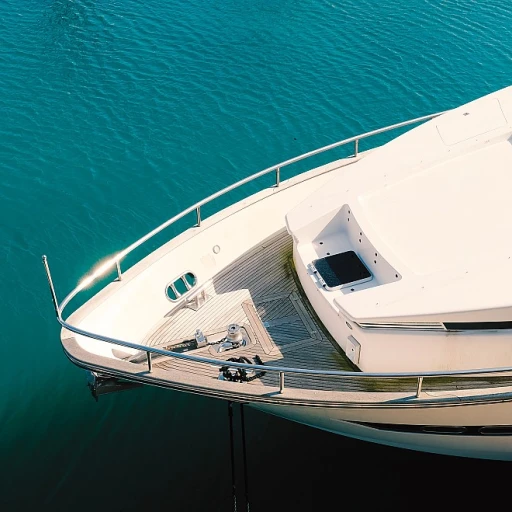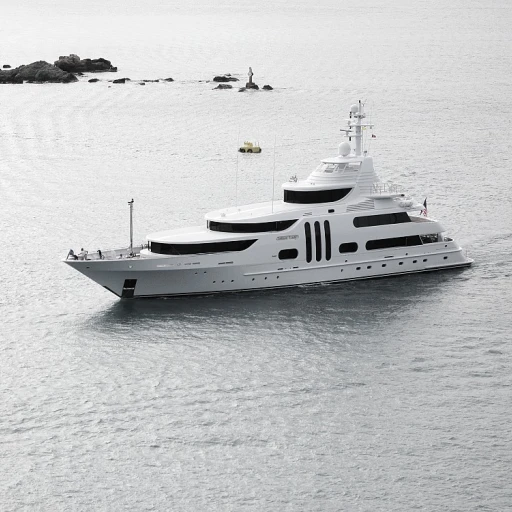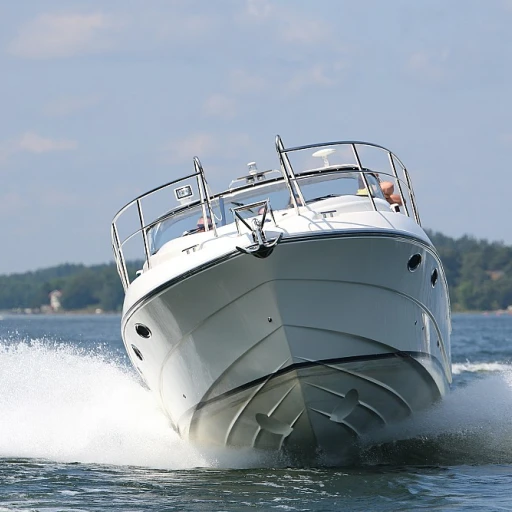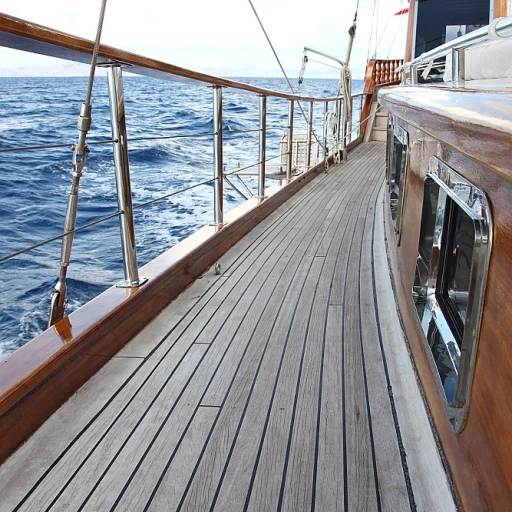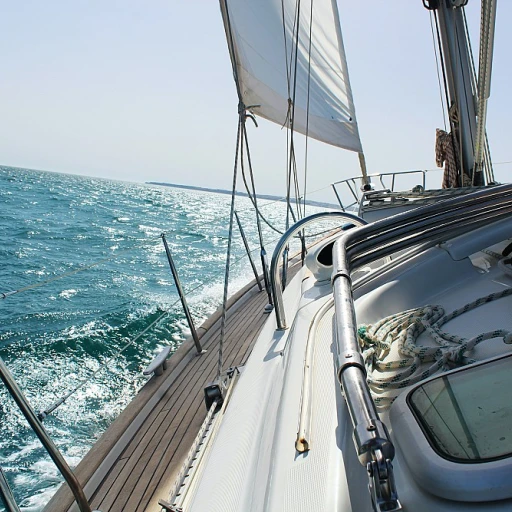
The Rise of Diesel Outboards
Emergence of Diesel Outboards in the Market
The yacht industry has been witnessing an increasing trend towards the adoption of diesel outboards in recent years. This shift marks a significant departure from the traditional gasoline outboards that have been prevalent for decades. The adoption is driven by a need for more efficient fuel economy and improved performance in outboard engines. Diesel outboards, such as the OXE Diesel and offerings from Cox Marine, are making waves in this arena by providing high torque at lower rpm, meeting the demands of yachts looking for power and reliability.
The innovation in diesel technology is spearheaded by companies striving to bridge the gap between power and fuel efficiency. The high torque capability of the diesel engine enhances the performance of yachts, offering an attractive alternative to gasoline outboards. This is particularly evident with advancements in turbo diesel technologies, which further optimize fuel consumption while maintaining superior engine power.
An important factor contributing to this trend is the awareness among yacht owners and stakeholders about sustainable fuel consumption. The marine industry is increasingly placing emphasis on reducing environmental impact, making diesel outboards a promising option. For those in the yacht industry exploring fuel-efficient solutions, diesel outboards present a viable choice that aligns with these eco-friendly goals.
Advantages of Diesel Outboards
The Edge of Diesel Power in Yachting
The advent of diesel engines, particularly diesel outboards, has introduced a wave of advantages that are shaping new possibilities within the yachting world. Unlike their gasoline counterparts, diesel outboards such as the OXE diesel and Cox Marine models are known for their efficiency and robustness. They offer several benefits that are becoming increasingly appealing to yacht enthusiasts and professionals alike.
First and foremost, fuel efficiency is a major draw. Diesel outboards typically boast superior fuel economy, reducing both fuel consumption and operating costs on long journeys. This is largely attributed to the high energy content of diesel fuel compared to gasoline, which allows for extended range and fewer refueling stops.
Furthermore, diesel outboards are celebrated for their high torque output. This characteristic ensures better performance when moving heavy loads or during high-demand applications. High torque translates to improved acceleration and sustained speed, especially beneficial for larger yachts that require dependable power to navigate efficiently.
Durability and reliability regularly come up when discussing diesel engines. The robust design of diesel outboards often results in longer service life and less frequent maintenance. This makes them a sound investment for those seeking longevity combined with power. Additionally, diesel engines are generally safer, due to a lower risk of fuel-related fire hazards, as diesel is less volatile compared to gasoline.
With improvements in technology, modern diesel outboards are closing the gap in areas where they previously lagged, such as noise and vibration, making them a more comfortable choice. The integration of advanced hydraulic systems enhances steering and speed control, further enhancing maneuverability and operational efficiency. Notably, brands like OXE Marine and Jet Tech continuously refine their offerings, contributing to the market's evolution.
These advantages are critical in sea-faring scenarios, where the demands on an outboard engine are as varied as they are rigorous. The potential of diesel outboards in reshaping the future of the yacht industry is undeniable, promising reduced fossil fuel dependency, and showcasing a blend of high performance, durability, and efficiency.
To delve deeper into the technological intricacies and benefits of advanced marine components, such as those offered by leading diesel outboard manufacturers, understanding the role of TDS Water Makers in Yachting can offer additional insights.
Challenges in Adopting Diesel Outboards
Overcoming Barriers in Diesel Technology
The yacht industry is increasingly considering diesel outboards as a viable alternative to traditional gasoline outboard engines. However, transitioning to diesel outboards presents several challenges. Firstly, one of the significant hurdles is the initial cost. Diesel engines, such as the oxe diesel outboard, generally demand a higher upfront investment compared to their gasoline counterparts. This is due to the advanced technology and robust build required for high torque and performance. While the long-term fuel economy and efficiency might offset these costs, the initial price tag remains a deterrent for some yacht owners. Moreover, the installation process can be more complex. Diesel outboards often come with intricate systems and components like a sophisticated fuel kit and hydraulic systems, necessitating specialized knowledge and expertise for proper integration. This might result in additional costs and time, potentially making the shift less appealing for those without access to experienced marine technicians. Maintenance poses another challenge. Diesel engines require careful attention to ensure optimal performance. Regular checks on oil levels, fuel filters, and speed control mechanisms are necessary to sustain their longevity and efficiency. The required knowledge for maintaining a diesel outboard engine is often more demanding than that for gasoline outboards. Lastly, diesel technology in the marine sector is still evolving. Many manufacturers are working on innovations aiming to boost power output, improve RPM range, and optimize fuel consumption. While promising, these advances are not yet universal, meaning some diesel engines might not offer the performance enhancements seen in newer models. As the industry continues to develop, addressing these challenges will be essential for the widespread adoption of diesel outboards. In the meantime, potential adopters are encouraged to master key techniques that support successful integration and operation of this promising technology.Technological Innovations in Diesel Outboards
Innovations Driving Diesel Outboard Performance
The yacht industry is witnessing a wave of technological advancements in diesel outboards, pushing the boundaries of what these engines can achieve. One of the key players in this arena is OXE Marine, known for their high-performance diesel outboard engines. These engines are designed to deliver high torque at low RPM, which is crucial for heavy-duty marine applications. This innovation not only enhances the power and performance of the outboard motor but also contributes to better fuel efficiency.
Another significant development is the integration of turbo diesel technology. Turbocharging allows for increased power output without a corresponding increase in engine size, making it an attractive option for yacht owners looking to maximize performance while maintaining fuel economy. This technology is particularly beneficial in reducing fuel consumption, a critical factor for long-range voyages.
Advanced Control Systems and Efficiency
Modern diesel outboards are equipped with sophisticated speed control systems that optimize engine performance under various conditions. These systems adjust the gear ratio and RPM to ensure the engine operates at peak efficiency, regardless of the load or speed. This not only improves the overall performance of the boat but also extends the range by conserving fuel.
Hydraulic systems have also seen improvements, providing smoother and more responsive handling. This is especially important for larger yachts where precise control is necessary for maneuvering in tight spaces. The combination of hydraulic advancements and high torque diesel engines results in a more enjoyable and safer boating experience.
Innovative Fuel Systems and Environmental Impact
As environmental concerns continue to grow, the development of cleaner and more efficient fuel systems is a priority. Diesel outboards are now being designed to run on alternative fuels, reducing their reliance on traditional diesel oil. This shift not only helps in lowering emissions but also aligns with global efforts to promote sustainable marine practices.
Manufacturers like Cox Marine are at the forefront of this movement, offering outboard engines that promise reduced environmental impact without compromising on performance. These innovations are setting new standards in the industry, making diesel outboards a viable and attractive option for yacht enthusiasts.
Case Studies: Yachts Using Diesel Outboards
Real-World Applications of Diesel Outboards in Yachting
The adoption of diesel outboards has been witnessed in several remarkable case studies across the yachting world. These examples illustrate the advantages and potential of diesel outboards over traditional gasoline engines. One notable application can be observed in projects involving turbo diesel systems, like the Oxe diesel outboards, which showcase impressive reliability and power. Yachts employing these outboard engines benefit from lower fuel consumption and improved fuel efficiency, thanks to their high torque and engine performance. This makes them a popular choice for long-range cruising. Furthermore, manufacturers such as Cox Marine have developed their own innovative outboard kits, enhancing the versatility and range of available systems. Cox Marine's diesel engines offer high RPM capabilities, ensuring robust speed control and optimal power output, which are essential for maintaining the performance of larger yachts. In terms of operational experience, yachts utilizing diesel outboards have reported significant improvements in fuel economy when compared to traditional gasoline outboards. This is attributed to the superior fuel efficiency of diesel technology, which translates to lower operating costs over time. Additionally, diesel engines are known for their durability and can endure the challenging marine environment without frequent maintenance, reducing the overall cost of ownership. Hydraulic systems integrated into these outboard motors also contribute to their appeal, offering smoother gear ratio transitions and enhancing the driving comfort. Yachts with outboard diesel engines are particularly favored in regions like the United States, where distance cruising is common, and the demand for high-torque outboard motors is high. In conclusion, the real-world implementation of diesel outboard technology in various yacht types validates their potential. The advantages of these engines, combined with the ongoing innovation in engine design and outboard motor efficiency, suggest a promising future for the adoption of diesel outboards in the marine industry.Future Trends in Diesel Outboard Technology
Anticipating Future Trends in Diesel Outboard Technology
The future of diesel outboards in the yacht industry is brimming with exciting possibilities. As the industry continues to prioritize efficiency and sustainability, several trends are anticipated to shape the course of diesel outboard technology.- Enhanced Fuel Efficiency: With rising awareness regarding environment-friendly practices, fuel efficiency is set to be a focal point. Manufacturers like OXE Marine and Cox Marine are already making strides in this area, ensuring that diesel outboards deliver optimal fuel consumption rates without compromising on power.
- Hybrid Systems and Electrification: Integrating hybrid propulsion systems is an emerging trend. These systems combine the high torque and performance of diesel engines with electric power, reducing emissions and noise levels. This not only enhances the range of the boat but also offers more control over speed and torque.
- Advanced Turbo Diesel Technology: Developments in turbocharging technology are likely to increase the performance and RPM of diesel outboards. Turbo diesel engines promise better power outputs and efficiency, aligning well with the needs of modern yachts.
- Intelligent Speed and Fuel Management Systems: The integration of smart speed control and fuel management systems will become more prevalent, optimizing the relationship between gear ratio, fuel economy, and outboard motor performance.
- Improved Hydraulic Systems: Superior hydraulic systems in diesel outboards are expected to enhance overall system functionality, providing greater control and manoeuvrability.
- Broader Adoption in the United States: As understanding and experience with diesel outboards grow, their adoption in markets like the United States is expected to rise, driven by their superior fuel efficiency compared to gasoline outboards.

